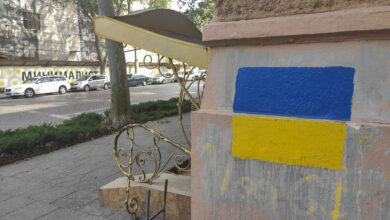Panama dialogue restores social peace, fails to deal with deeper problems

Panama City, Aug 4 (EFE).- The dialogue to resolve Panama’s worst social crisis in years, as evidenced by the massive protests in June, on Thursday marked the end of its second week, having brought back “social peace” to the country but without tackling the “deep-seated problems,” analysts told EFE.
The talks, in which the government and assorted unions and social organizations that called the protests are participating, have entered “the second phase of the first phase” in dealing with four of the eight pending issues comprising the agenda, including reducing the cost of electricity and dealing with government corruption.
In the “first phase” of the dialogue, which is being facilitated and mediated by the Catholic Church, the two sides have agreed on matters such as reducing and freezing the price of 72 products in the basic economic basket, as well as the government promising in 2024 to abide by the law allocating 6 percent of the GDP – about $1.2billion – to education.
Even before the dialogue was launched, on June 21, and in a failed attempt to pacify the protesters, the administration of Laurentino Cortizo approved temporarily reducing and freezing fuel prices at $3.25 per gallon, “the lowest price in Central America,” as the president emphasized, going on to announce an austerity plan to reduce government spending by about 10 percent.
In addition, the two sides have discussed other areas of interest, including the price of medications – considered to be the highest and most prohibitive in the region – although they have not managed to arrive at additional agreements, as a result of which the talks will continue on another level.
With the preliminary accords reached, the protests ceased and the roadways are now cleared after almost four weeks during which the Inter-American Highway – which connects Panama with the rest of Central America – was blocked by protesters, and teachers, the first group to declare a strike that lasted almost a month, returned to their classrooms.
Congratulations are in order, “for having once again proved that dialogue is the way to find solutions … (and) together we’ve brought back social peace,” Panamanian Archbishop Mnsr. Jose Domingo Ulloa said on Wednesday evening upon the resumption of talks after a recess of several days.
The agreements on freezing and controlling the prices of food and fuel “do not resolve (Panama’s) deep-seated problems” and probably will only “put the fire out temporarily,” the former president of the Panamanian chapter of Transparency International, Carlos Barsallo, said, adding that he is “skeptical” that the dialogue can provide “all the hoped-for results.”
The crisis that erupted last June “probably will repeat itself if the deeper problems are not resolved,” he said, adding that the talks have not dealt with “the lack of justice, the certainty of punishment” in the country and will not do so at least to the degree that is required.
Eliminating impunity “requires an objective investigation of the Public Ministry and a ruling by the judicial branch, and the dialogue, so far, is not going there,” he said.
Meanwhile, the private sector has complained that it is being left out of the discussion – despite the fact that Mnsr. Ulloa has said that it will be involved in the second phase – and it has asseted that the talks are developing into a “delusional monologue” that is using mechanisms that bring with them “scarcity and social insecurity,” such as the price controls.
“We cannot accept that solutions exist within a dialogue under the pretext that there’s going to be a phase two,” which remains uncertain and in which the (private) sector will become involved who knows when,” said the president of the National Private Business Council (Conep), Ruben Castillo.
EFE adl/gf/jrh/bp





